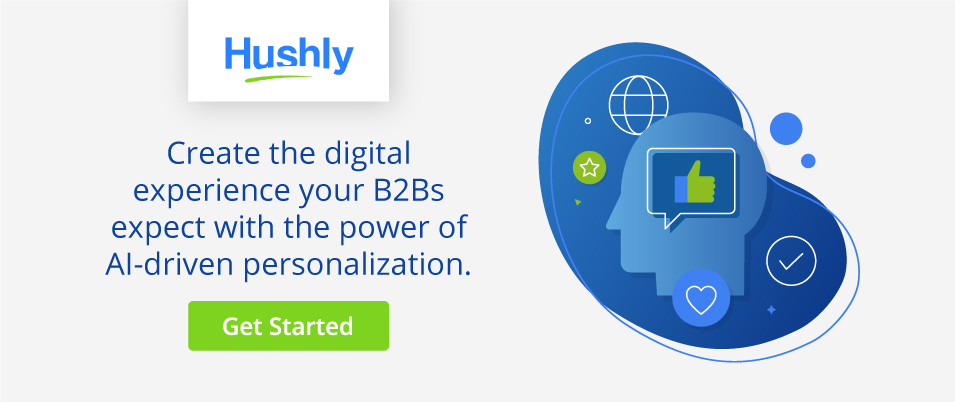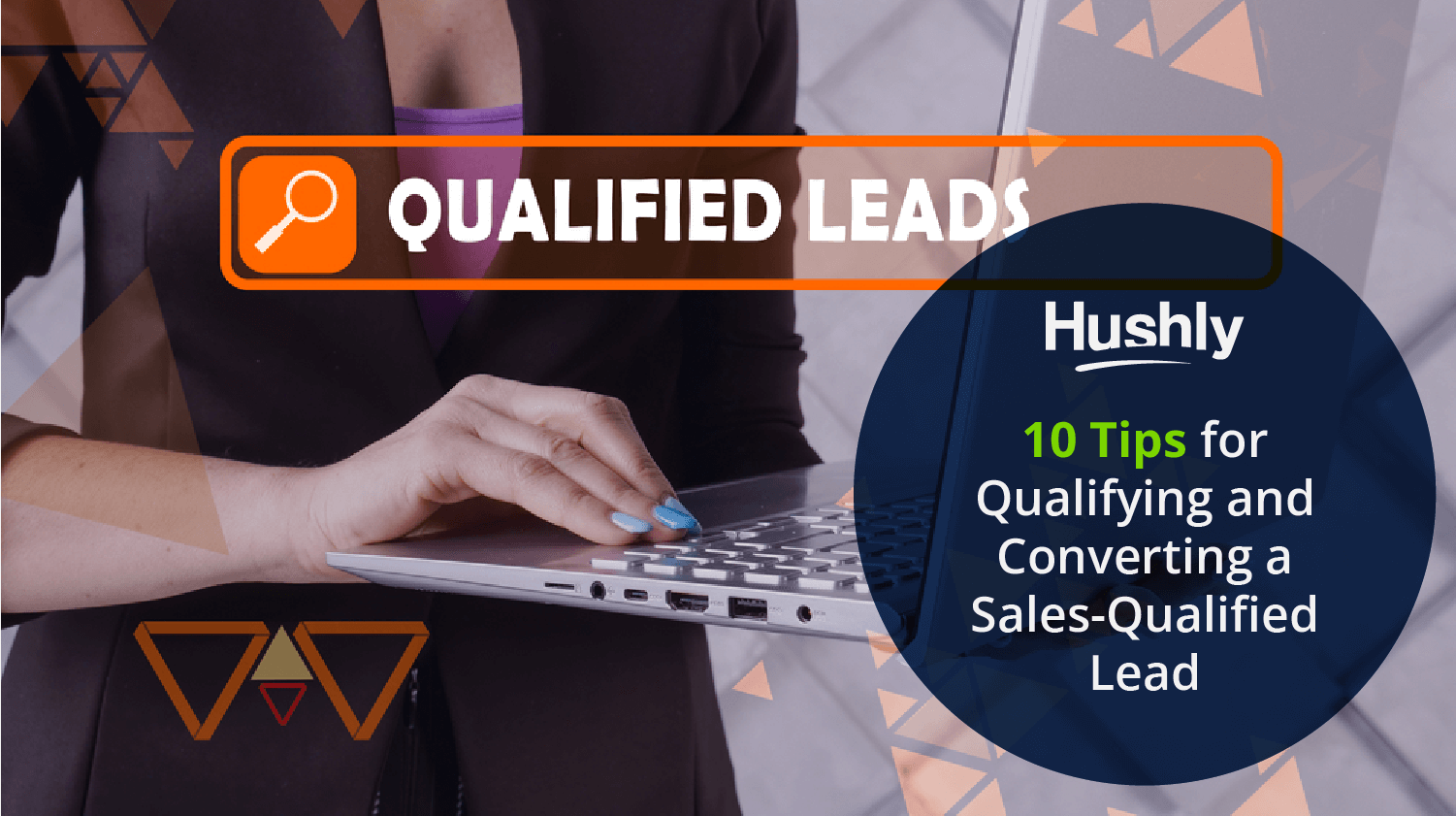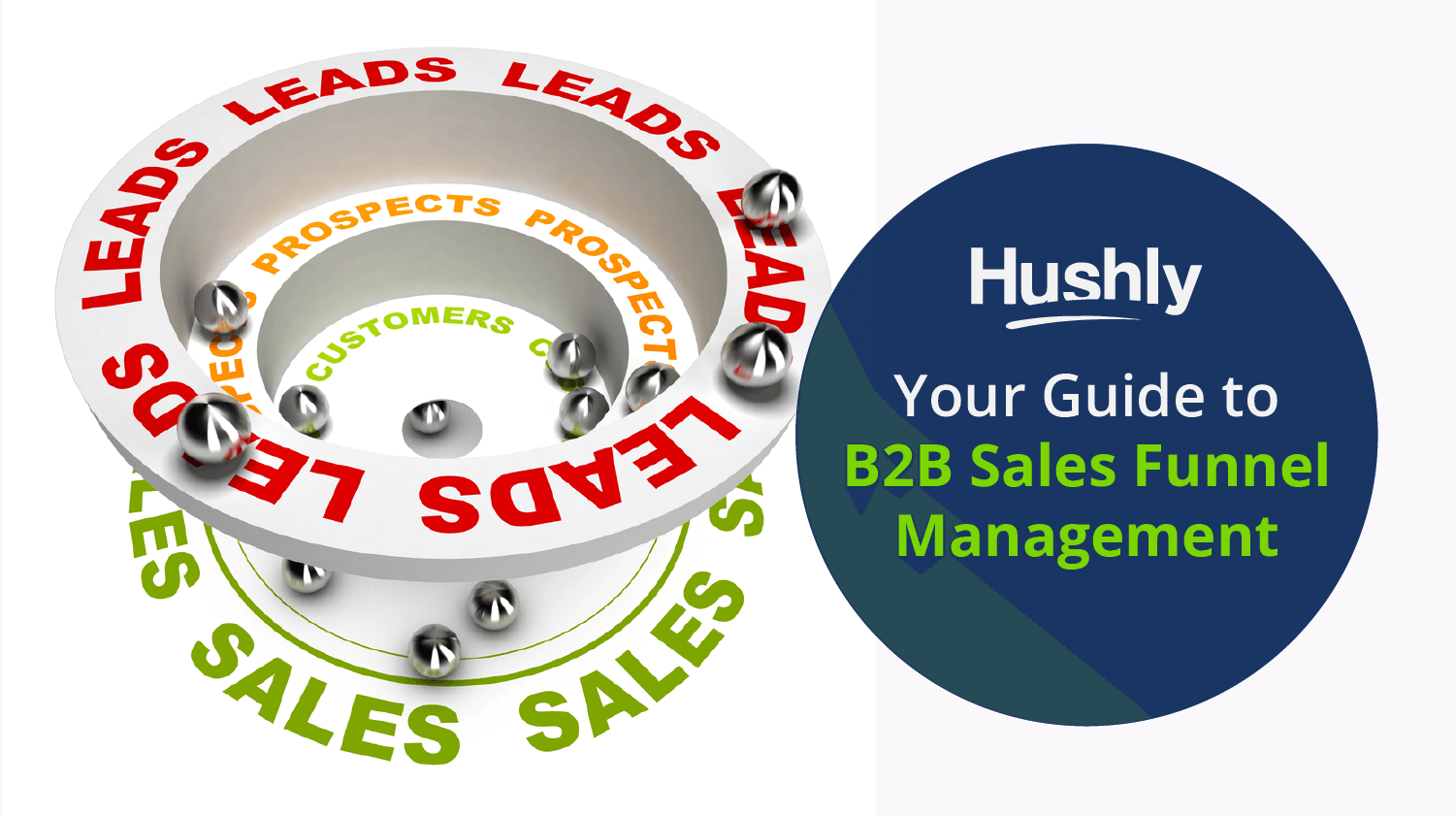We hear a lot about driving value from experiences rather than material things – but what does that mean for B2B sales?
To understand the changing B2B experience, start by looking at the broader picture.
Research shows that 78% of millennials would rather spend their hard-earned money on experiences – like live concerts and travel – than the alternative.
Millennials are driving the “experience economy” and guess what? They work in B2B, too.
73% of millennials who work in B2B are involved in buying decisions with 34% holding the role of key decision-makers at their respective companies.
Most millennials weren’t born into a world of home internet and smartphones but technology did shape their formative years. Millennials have had access to Amazon, Facebook, and personalized experiences most of their adult lives.
They’ve watched these AI-driven technologies emerge and saturate every sector.
As generation Z starts to enter the labor force, B2B brands can’t ignore the changing dynamic and expectations. Here’s how to not only keep up but stay ahead.
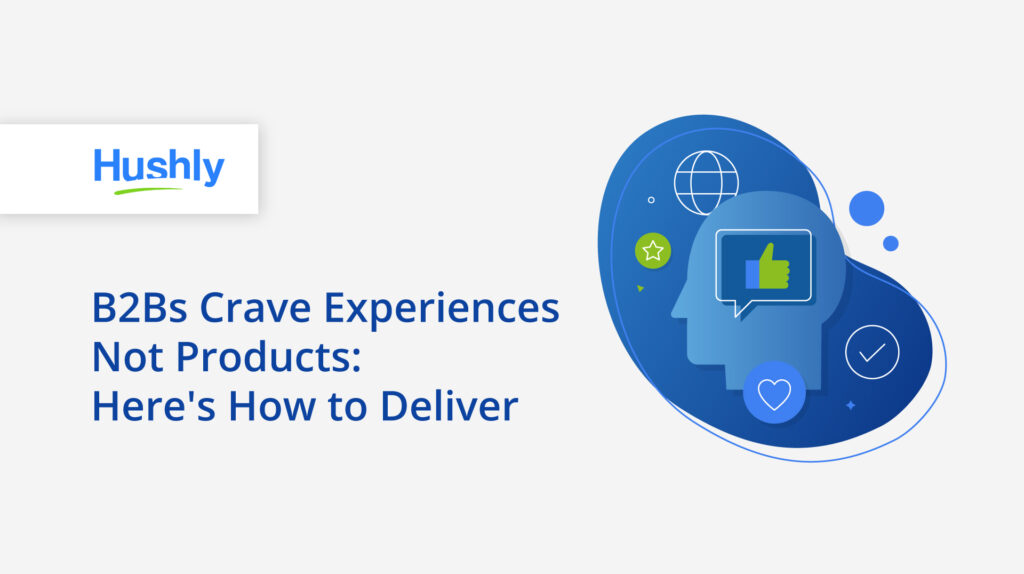
What Does the Buyer’s Journey Look Like in 2020?
Access to endless information and global markets have forced the entire buyer’s journey to evolve. For example, half of the millennials in B2B said they’ve done business with international companies – a huge change from the behavior of baby boomers and Generation Z.
Let’s take a look at what the journey looks like today.
Buyers are Researching on Their Own
Gartner found that B2B buyers only spend 17% of the buyer’s journey connecting with potential sales teams. Keep in mind that 17% is usually spread across multiple vendors, too. In most cases, a buyer will only meet with your sales team for 5% of their entire journey.
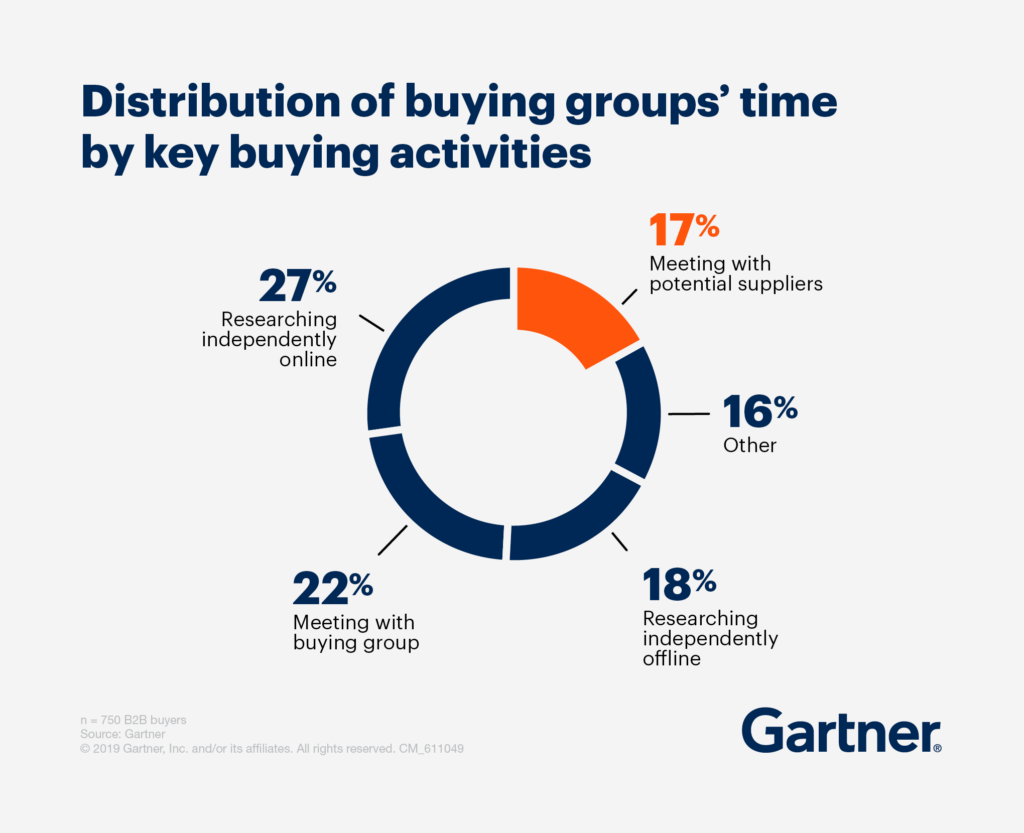
Instead, the B2B experience involves a lot of research: 45% of the entire journey, both online and off.
B2B companies need to step up and provide an experience to accommodate their leads. Make it as seamless as possible for them to find the information they need.
The Buyer’s Journey isn’t Linear
Everyone knows the B2B sales journey is long but it isn’t linear either.
CEOs might turn over (1,160 CEOs stepped down in the first three-quarters of 2019). Budgets change. Needs adapt to changing markets.
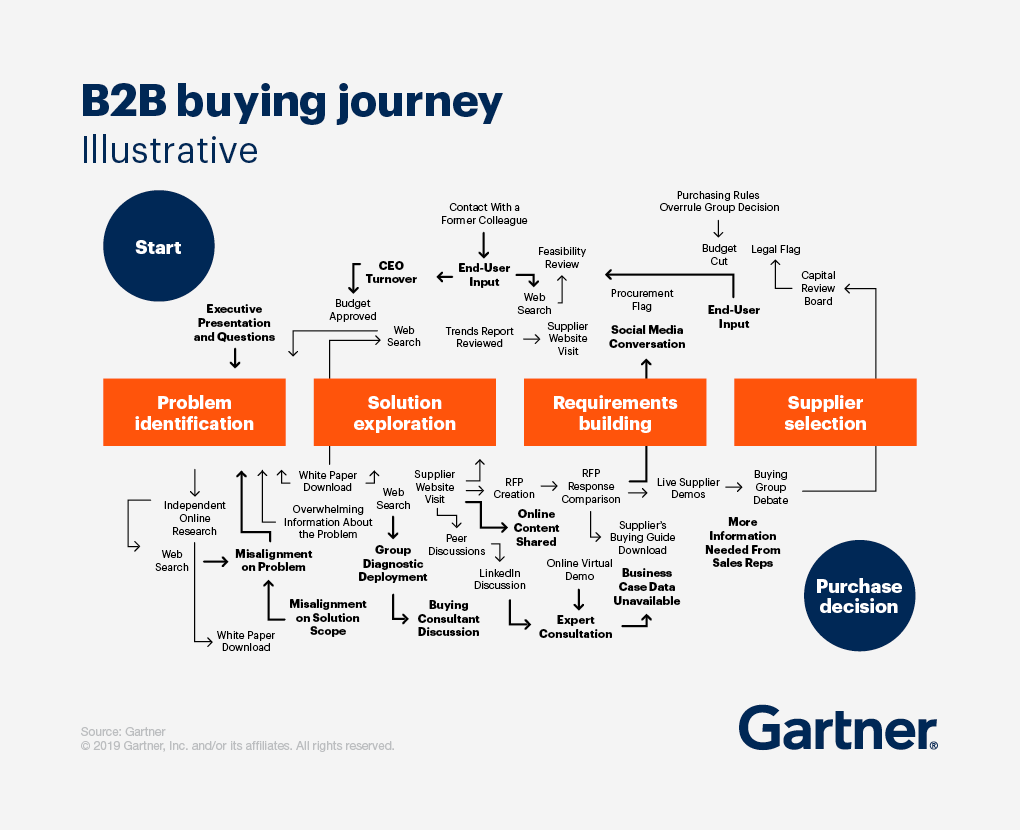
The only thing predictable about the buyer’s journey is that it’s unpredictable. That’s why inbound tactics are more effective than outbound.
However, inbound marketing still doesn’t go far enough if you don’t optimize every touchpoint for factors like a visitor’s industry, company, and stage of the buying process.
The B2B Experience Demands High-Level Personalization
While 77% of B2B marketers understand the importance of personalization for building relationships with leads and customers, 42% say they haven’t fully optimized their personalization strategies.
21% say they don’t use data to personalize their content marketing. Meanwhile, only 39% would call their current personalization “somewhat sophisticated.”
There’s a huge disconnect between the B2B experience buyers expect and what brands are delivering.
84% of buyers say the key to winning their business is treating them like a human being instead of another number. Hyper-personalization through an AI-driven website experience is key to winning hearts and minds.
B2B Customers Still Prefer Some Type of Human Interaction
No matter how much we shift online, the B2B experience still requires human interaction. Buyers – and humans in general – crave it.
94% of buyers say they’re more likely to buy from a company when they can have real-time interactions with a knowledgeable employee.
That demand doesn’t disappear when they convert into customers either. Customers want helpful interactions from real people to improve their experience.
How to Create a B2B Experience Buyers Expect
The question now becomes, how can marketers create the digital B2B experience their leads and current customers expect? What AI-driven tools can they use to automate personalization on their website?
Personalize with AI and Machine Learning Algorithms
Artificial intelligence makes it easy to provide a hyper-personalized experience on your website for everyone – whether known or anonymous.
Instead of forcing your leads to sort through eBook categories or old blog posts to find something relevant, AI offers personalized content recommendations based on browsing behavior.
For example, if someone working for an NGO visits your website, the AI engine will recommend all your content about NGOs. When you create a hyper-personalized experience, visitors will stay on your site longer consuming all your best content assets.
Self-Nurturing Landing Pages
Most landing pages stick with a single CTA and end the conversation. While a single CTA is still a smart practice, it doesn’t have to be the only solution.
Self-nurturing landing pages give your visitors an endless stream of personalized content. This buys you more time to make your case as to why they should stay in touch with your brand and provide their email address.
Not only that, but the algorithms are designed to choose content that guides a visitor towards conversion based on their stage of the buying cycle.
Adaptive Content Hubs to Educate Buyers
An adaptive content hub lets you organize your content by different categories – like content type, vertical, or stage of the buying cycle.
Once a visitor starts browsing, the AI engine takes over to continue recommending an endless stream of similar content.
Human Lead Verification to Eliminate Gated Content
If you’re like most B2Bs, missing form fields, incorrect entries, and outdated data plague your marketing strategies.
Human lead verification eliminates the issue at its source. Once a lead provides their email address, the algorithm uses public information from sources like LinkedIn to fill in the firmographic gaps.
Plus, you don’t have to gate your best content behind forms. While visitors receive a better browsing experience, you get more time to nurture leads while they’re on your site and more accurate data when they decide to convert.
Use the Power of AI to Skyrocket Lead Conversions by 51%
Hushly helps B2B companies harness the power of AI and machine learning to create a unique experience for every visitor. Whether a collected lead or anonymous visitor, Hushly’s AI engine uses behavior data to learn about everyone and create a unique content experience.
Create the digital experience your B2Bs expect with the power of AI-driven personalization.

